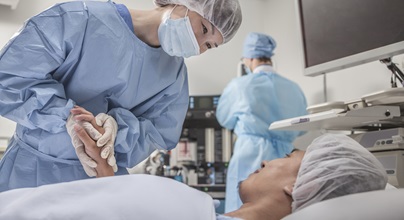Physician assistants (PAs) are trained and licensed healthcare professionals who help communities and patients get quality care.1 They collaborate with licensed physicians to conduct physical exams, diagnose and treat common problems, develop care plans, and prescribe medications. Licensed PAs may also advise patients on preventative care and assist in surgery and procedures. Physician assistants may work in hospitals, primary care clinics, urgent care, nursing homes, community health centers, and university settings. They collaborate with licensed physicians to conduct physical exams, diagnose and treat common problems, develop care plans, and prescribe medications. Licensed PAs may also advise patients on preventative care and assist in surgery and procedures. Physician assistants may work in hospitals, primary care clinics, urgent care, nursing homes, community health centers, and university settings.
South University has five locations that offer a Master of Science in Physician Assistant program. This program gives PA students real-world preparation over 27 months and 174 course credits. Graduates may sit for licensing exams, apply for certification, or go on to doctoral programs.
This blog post explores the two phases of our PA program—didactic and clinical—and the milestones PA students hit along the way.
Part 1: Didactic Phase (15 months, 100 Credits)
For the first 15 months of our Physician Assistant program, students learn in the classroom and lab. Instructors draw on their professional knowledge and experience to help students create a strong foundation for future practice. Because our PA program uses the quarter system, students take new courses every three months that build on what they have already learned.
Students start with courses and labs like anatomy and physiology that prepare them to do physical exams and patient interviews. In a professional seminar, they discuss the history and role of PAs in the medical field. These classes are followed by numerous clinical medicine and pharmacotherapeutic courses. These classes cover many diagnoses and treatments students will use as practicing PAs. They explore topics from medical ethics to diagnostic methods to evidence-based medicine and public health. In the final quarter, students learn about treating special populations and various medical procedures.
During the didactic phase, students receive a short white coat that designates them as students during their time at medical facilities. Students will continue to wear this coat in the upcoming clinical phase.
 Part 2: Clinical Phase (12 months, 74 Credits)
Part 2: Clinical Phase (12 months, 74 Credits)
Next up is 12 months of hands-on clinical training! After learning in the classroom and lab, students apply their new skills in medical settings. PA students may serve in hospitals, outpatient clinics, telemedicine practices, and more.
Students have the opportunity to gain experience in emergency medicine, internal medicine, family practice, women’s health, pediatrics, surgery, behavioral medicine, and other areas. The time spent in each specialty is called a rotation. In each rotation, students pair up with a preceptor for five weeks. These preceptors mentor and guide PA students throughout the clinical year. They help students do procedures, histories, and physical exams on patients from infants to elderly adults.
At the end of the clinical year and the PA program, we celebrate our students' achievements with a long coat ceremony. The long coat signifies that the graduates have become colleagues in the clinical community. Graduates also receive a Master of Science in Physician Assistant degree at their commencement ceremony.
Getting Started at South University
The South University Physician Assistant program can give you the education and hands-on experience for your journey to becoming a physician assistant. With an emphasis on increasing access to care, reducing health disparities, and engaging in community outreach, we aim to provide inclusive educational experiences for all.
Once you complete your studies and clinical training and pass your licensing exams and certification, you will be ready to pursue employment alongside licensed physicians. As a PA, you could pursue a meaningful career delivering equitable, evidence-based, and patient-centered medical care.
Learn more about our Master of Science in Physician Assistant program today!
--
1South University does not promise or guarantee licensure, employment, or salary amounts.
Graduates are required to sit for and pass the national certification exam and obtain a state license in order to work in the field. (Exam names vary by program.) Please refer to the State Professional Licensure Determination and National Certification/Licensure section of the University catalog for program and state specific information. Graduates are required to sit for and pass the national certification exam and obtain a state license in order to work in the field. (Exam names vary by program) Please refer to the State Professional Licensure Determination and National Certification/Licensure section of the University catalog for program and state specific information. South University cannot guarantee each graduate will pass the required licensure examinations. Outside agencies control the requirements for taking and passing certification/licensing exams and are subject to change without notice to South University. Students must pass the required licensure to work in their respective field.




